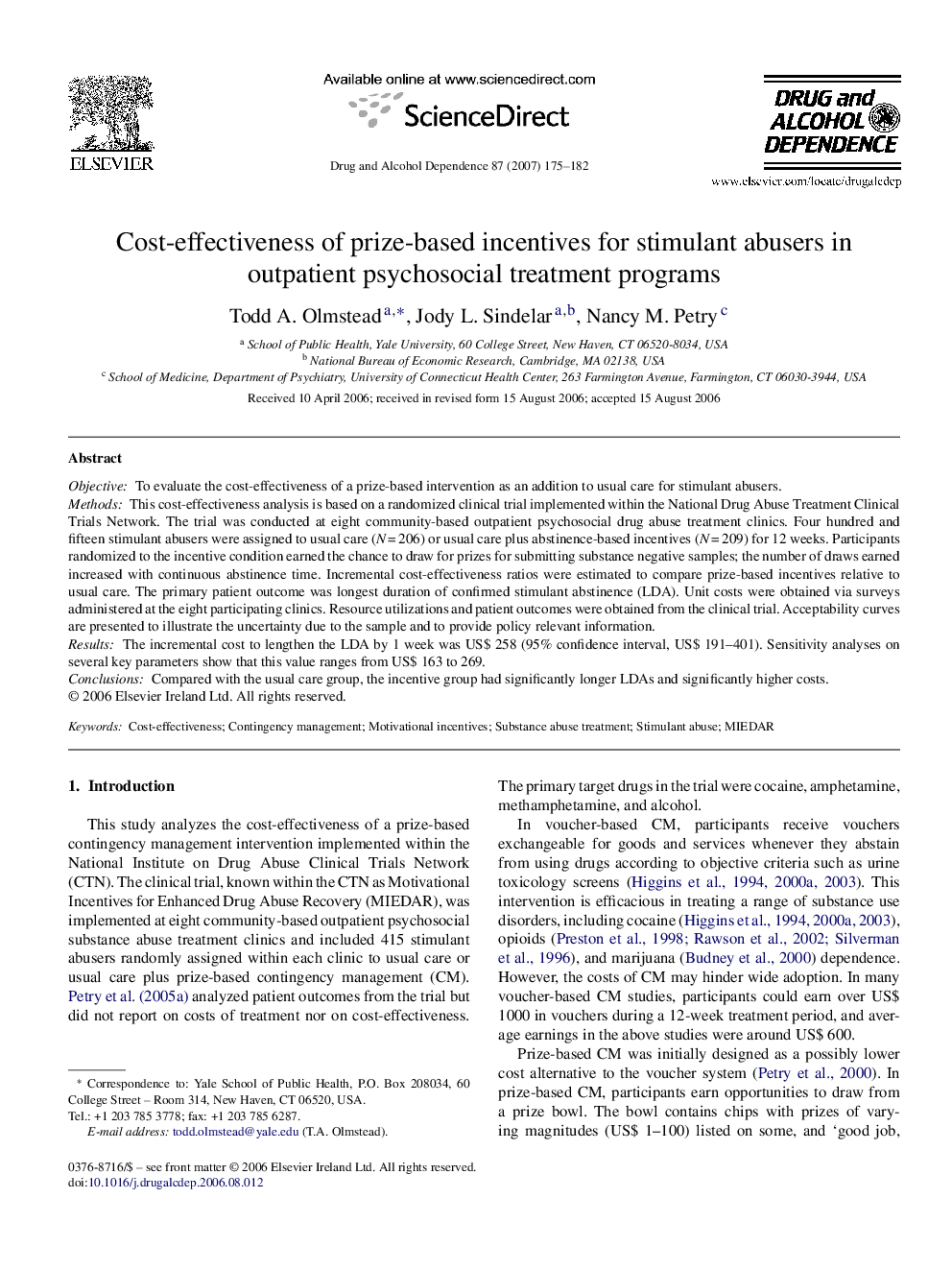| Article ID | Journal | Published Year | Pages | File Type |
|---|---|---|---|---|
| 1071308 | Drug and Alcohol Dependence | 2007 | 8 Pages |
ObjectiveTo evaluate the cost-effectiveness of a prize-based intervention as an addition to usual care for stimulant abusers.MethodsThis cost-effectiveness analysis is based on a randomized clinical trial implemented within the National Drug Abuse Treatment Clinical Trials Network. The trial was conducted at eight community-based outpatient psychosocial drug abuse treatment clinics. Four hundred and fifteen stimulant abusers were assigned to usual care (N = 206) or usual care plus abstinence-based incentives (N = 209) for 12 weeks. Participants randomized to the incentive condition earned the chance to draw for prizes for submitting substance negative samples; the number of draws earned increased with continuous abstinence time. Incremental cost-effectiveness ratios were estimated to compare prize-based incentives relative to usual care. The primary patient outcome was longest duration of confirmed stimulant abstinence (LDA). Unit costs were obtained via surveys administered at the eight participating clinics. Resource utilizations and patient outcomes were obtained from the clinical trial. Acceptability curves are presented to illustrate the uncertainty due to the sample and to provide policy relevant information.ResultsThe incremental cost to lengthen the LDA by 1 week was US$ 258 (95% confidence interval, US$ 191–401). Sensitivity analyses on several key parameters show that this value ranges from US$ 163 to 269.ConclusionsCompared with the usual care group, the incentive group had significantly longer LDAs and significantly higher costs.
